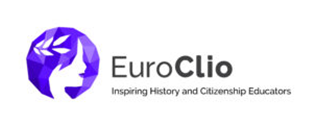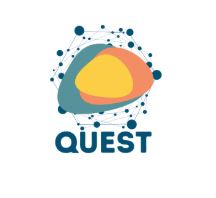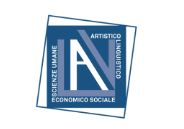About the Project
Decolonization of the Curriculum refers to the multilayered process of recognizing and dismantling power dynamics and knowledge paradigms that perpetuate racial, gender, and geo-political hierarchies. It entails rectifying historical and present power imbalances (dominations) and their social ramifications (discriminations), challenging the assumptions of Western knowledge hegemony and superiority.
Educational systems in Europe often reflect Eurocentric paradigms, marginalizing non-Western narratives and perpetuating inequalities. DECUS seeks to address these gaps by integrating decolonial approaches, and supporting teachers in their professional development, fostering intersectional inclusion and equality in secondary education. Visit the project website here.
Project Aims & Outcomes
DECUS General Objective is to Empower Secondary School teachers in employing decolonizing methodologies to foster inclusive learning environments, through the support of experts in diversity, decolonization and education.
This General Objective is supported by the following Specific Objectives (SOs):
- SO.1 – Promote Decolonization of the secondary school Curriculum
- SO.2 – Professionalise Teachers by developing inclusive competences through decolonisation approach
- SO.3 – Empower teachers to employ inclusive decolonizing practices in the classroom
- SO.4 – Favour a cross-curricula, cross-sectoral and cross-national exchange so to diversify and enrich the school experiences and practices
Activities
Activities:
- Engaging & Un-learning: A training for secondary school teachers, online and in person. The training will be based on literature reviews and the needs
expressed by the teachers and educators in secondary education.
A toolkit gathering all key resources will be created. An online library will be opened, collecting all meaningful contributions to the topic. - Acting & Reacting: Co-creation of lesson plans by international teams of teachers and mentored by inclusion, diversity and decolonial pedagogies experts.
Teachers will test decolonizing methodologies and lessons plans in the classroom and assess their impact. - Restoring & Regenerating: Consists in an in-presence Conference in Brussels, gathering key educational stakeholders engaged in the process of decolonizing knowledge, education and curriculums.
- Representation & Narration: dissemination strategy to attract the attention on common historical bias and prejudices that are often reproduced in the curriculums, and best practices to address them.
Concrete results:
- Decolonial Library, an online open-access resources centre gathering all meaningful contributions to the topic Decolonization & Education.
- Unlearning Online Training course for secondary school teachers to understand and engage in the decolonization processes of curriculums and teaching practice.
- Practical guidelines for teachers that can support them in implementing Decolonial methodologies in the classroom. Providing inputs on activities to use in the classroom, questions-for self reflection, and best-practices to inspire.
- A set of Decolonized Lesson Plans tackling challenges linked with Eurocentrism in the curriculums from various perspectives.
- Conference on Decolonization in School Education: in presence large-scale event inviting and engaging practitioners, experts, and key stakeholders in the fields of education, decolonization, and intersectionality.
Project Updates
Engaging & Un-learning:
- The DECUS Toolkit is available in English, French, Greek, Italian and Dutch. It is the result of collaboration between schools, universities, and NGOs from Belgium, Italy, Greece, and the Netherlands, brought together by the shared need for more inclusive, reflective, and justice-oriented educational models. The Toolkit is designed as a living resource, not a checklist. It brings together 16 practical tools, organised around reflection, critical analysis, and relational pedagogy. Across all chapters, the toolkit encourages slow, reflective, and relational engagement, foregrounding the “Broccoli Seeds Agreement”: the idea that meaningful change grows through small, patient, community-rooted actions rather than quick fixes.The Training is available on the DECUS YouTube channel, and all materials used during these sessions (i.e. PowerPoints, recordings, and supporting resources) are now accessible on the DECUS website.
Consortium
EuroClio – European Association of History Educators
QUEST – Quality Education in Europe for Sustainable Social Transformation
QUEST is a network based in Brussels that connects pioneer schools and organisations from 27 countries to promote change in education.
We strive to promote research, policies and practices that support democratic, inclusive and sustainable education.
VUB is an Urban Engaged University in Brussels, the heart of Europe. Nearly 25,000 students, a quarter of them from abroad, are engaged in building their future and that of the world. With top-quality scientific research and customised education, VUB makes an active and engaged contribution to a better and more sustainable society.
The school began operating in Montebelluna in the 1966/67 school year as a separate section of the “Duca degli Abruzzi” teacher training institute in Treviso. In the following school year 1967/68 it obtained autonomy from Treviso and only a few years later the collegiate bodies chose the name “Angela Veronese” in homage to a local poet from the 1700s.
With the termination of the validity of the teaching diploma, the Institute began a phase of curricular experimentation which led to the current four areas that characterise it:
- Independent linguistic high school
- High School of Human Sciences – Economic and Social Sciences
- Art High School – Architecture & Environment
- High School of Human Sciences
Maricolen Maldegem strives to bring out the best in each other. The school does this through a number of typical projects: Erasmus, Sport Plus, student participation in the student council and various working groups… The pedagogical project can be seen as a tree. This tree has deep roots: the students know themselves and know who they want to be. The tree also has a solid trunk as a base: the students are well prepared so that they can develop, push boundaries, unfold so that they achieve good results in higher education or are good employees on the labor market. The tree branches out further: students are connected to others, stimulate and motivate each other and give everyone opportunities. The tree finally ends in a beautiful crown: students engage as active citizens in society.






